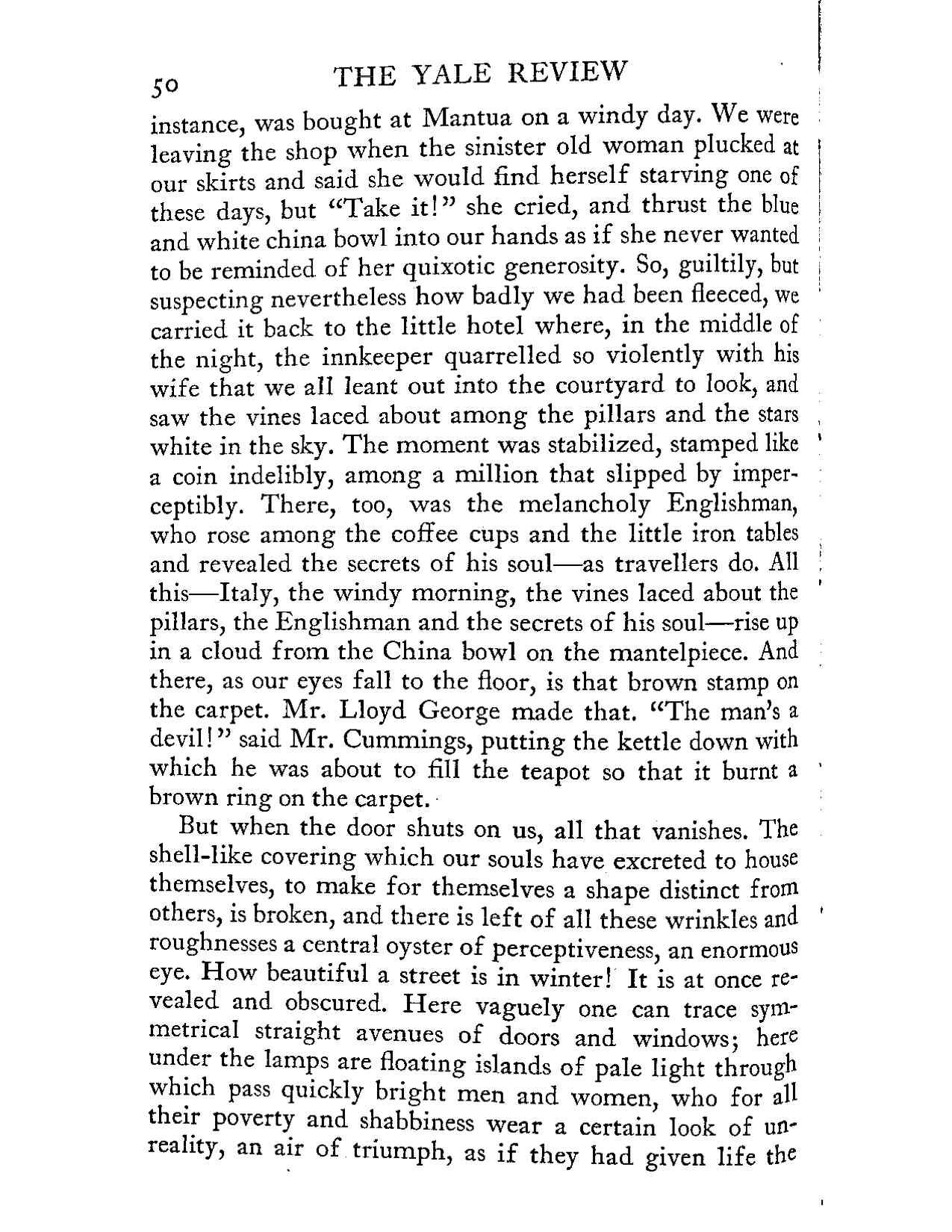
instance, was bought at Mantua on a windy day. We were
leaving the shop when the sinister old woman plucked at
our skirts and said she would find herself starving one of
these days, but, “Take it!” she cried, and thrust the blue
and white china bowl into our hands as if she never wanted
to be reminded of her quixotic generosity. So, guiltily, but
suspecting nevertheless how badly we had been fleeced, we
carried it back to the little hotel where, in the middle of
the night, the innkeeper quarreled so violently with his
wife that we all leant out into the courtyard to look, and
saw the vines laced about among the pillars and the stars
white in the sky. The moment was stabilized, stamped like
a coin indelibly, among a million that slipped by impe-
rceptibly. There, too, was the melancholy Englishman,
who rose among the coffee cups and the little iron tables
and revealed the secrets of his soul—as travellers do. All
this—Italy, the windy morning, the vines laced about the
pillars, the Englishman and the secrets of his soul—rise up
in a cloud from the china bowl on the mantelpiece. And
there, as our eyes fall to the floor, is that brown stamp on
the carpet. Mr. Lloyd George made that. “The man's a
devil!” said Mr. Cummings, putting the kettle down with
which he was about to fill the teapot so that it burnt a
brown ring on the carpet.
But when the door shuts on us, all that vanishes. The
shell-like covering which our souls have excreted to house
themselves, to make for themselves a shape distinct from
others, is broken, and there is left of all these wrinkles and
roughnesses a central oyster of perceptiveness, an enormous
eye. How beautiful a street is in winter! It is at once re-
vealed and obscured. Here vaguely one can trace sym-
metrical straight avenues of doors and windows; here
under the lamps are floating islands of pale light through
which pass quickly bright men and women, who for all
their poverty and shabbiness wear a certain look of un-
reality, an air of triumph, as if they had given life the






